EIP-AGRI Innovation Awards 2024 for Operational Groups: Nominees
Page contents
Discover the nominees
30 Operational Group were selected as nominees for the EIP-AGRI Innovation Awards 2024. An expert jury selected one winner for each category. A seventh award was given to the ‘public favourite’. Over 11 000 votes were collected in total, thanks to everyone who voted!
Watch the videos submitted by each of the nominees and find out who the winners were below.
Sustainable management of natural resources in farming practices
Sustainable management of natural resources in farming practices includes EIP-AGRI Operational Groups that demonstrate innovative practices in resource efficiency and management which support sustainable transitions in agricultural systems. OGs in this category can cover topics such as soil, water, air pollution and more.
Colorado Beetle Catcher: Sustainable Machine Pest Control
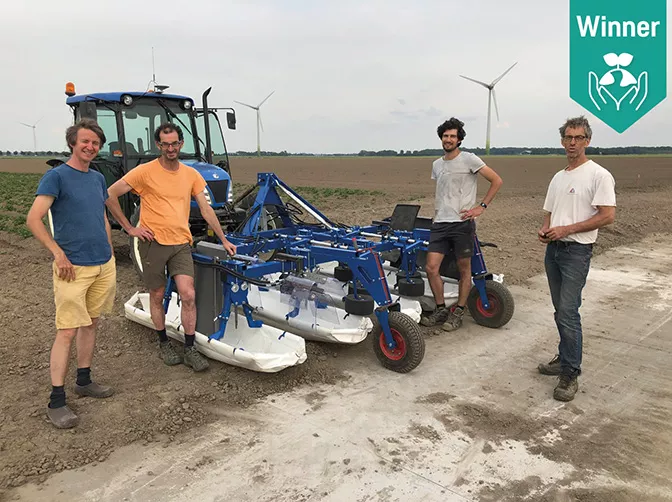
Hotter summers are increasing the occurrence of the Colorado potato beetle on Dutch farms. Farmers, designers, technicians and experts worked together in this Operational Group from the Netherlands to develop and test a mechanical pest control machine. It takes advantage of the natural behaviour of the Colorado beetle, catching them in a selective and sustainable manner. The use of this machine reduces the need to chemically combat this pest. An environmental subsidy is now given to Dutch farmers to purchase this machine and more than 20 farms have already placed orders. Over 50 on-farm demonstrations are scheduled across Europe next year. In addition, an adapted version is now being used in France against the weevil beetle in alfalfa production.
Project presentation
Interview
INPOSA – Innovation in tomato cultivation and sustainability in agriculture from molecular cuisine to the rural economy
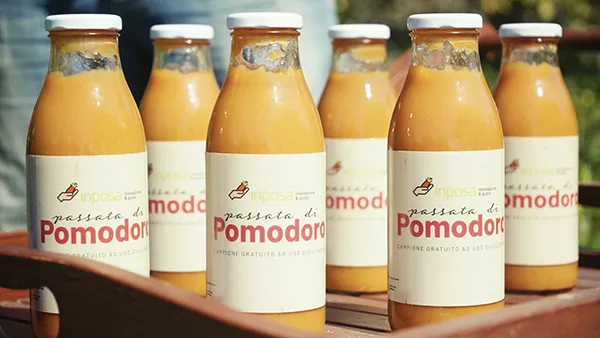
This Operational Group from Italy experimented with an invention related to harvesting and processing tomatoes at the veraison stage – when the tomato is not fully ripe and its colour is between green and golden. The invention ‘Pomodoro Pelato Dorato’ was temporarily licensed by a Sicilian chef. Consumers and chefs appreciate the veraison tomato for its taste, lightness, health benefits and other qualities. Harvesting at veraison limits waste and impact on the soil, as well as the use of inputs (water, labour, plant protection products, etc.), which reduces farm costs. The partners are agricultural and agri-food processing enterprises, an association of agricultural producers, a sustainable territorial development association, and scientists and researchers. The project has produced specifications so that other producers can apply the process to any open field tomato enterprise.
MoreSoil
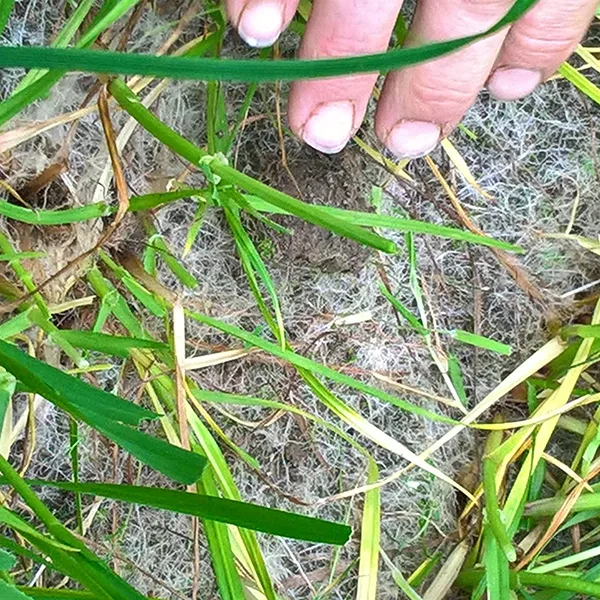
In Ribatejo, Portugal, monoculture and crop intensification lead to pests, fungi and nematodes, responsible for severe production losses. Integrating cover crops is a solution which also contributes to sustainable pest control, improving soil fertility and carbon sequestration. This Operational Group developed a new biodiverse mix of legumes and grains to use as cover crops that are well-suited to the soil, climate and agricultural practices in the area. Methods to monitor soil health were applied, and the project established a programme with local farmers that consisted of co-creation workshops, training and demonstration plots. Scientific and technology representatives, industry and consultants participated in the project. The new product has become established in Portugal and abroad.
Preservation of the blackcurrant sector in Burgundy and Franche-Comté, securing production volumes and organoleptic quality in the face of climate change: adapting and developing innovative agro-ecological practices
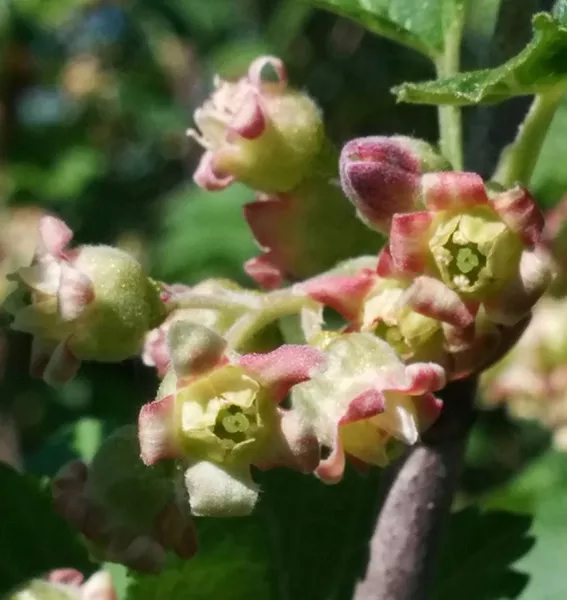
This Operational Group from France addressed the declining yields in blackcurrant production. In collaboration with farmers and industry stakeholders, the project developed innovative agroecological practices to combat the effects of climate change, notably the 99% decline in pollinators since the 1980s, focusing on bee species, which significantly improve yields. For example, farmers were trained to maintain O. bicornis nests and introduced flower strips. The project's transferability extends to other crops such as cherry, apple or plum. Improved pollination enhances fruit quality parameters and can expand market opportunities such as organic certification due to reduced pesticide usage.
Sustainable Uplands Agri-environment Scheme (SUAS)
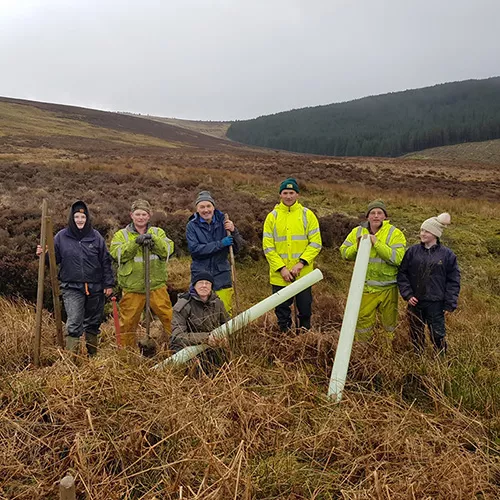
This Operational Group addresses the declining conditions of upland habitats in the Wicklow and Dublin Mountains (Ireland) brought on by the increasing number of farmers moving away from grazing in the area. This project introduced Commonage Groups, fostering collective management and integrating habitat management with livestock practices. It also promoted techniques such as supplementary feeding and GPS tracking. Training courses and a payment system rewarding farmers for habitat management were developed. The project has led to a shift in farmer attitudes towards habitat management, diversifying farm income alongside animal production. The results are transferable to other upland regions. Farmers, ecologists and government agencies collaborated in the project’s development.
Business models in food supply chains
EIP-AGRI Operational Groups that showcase innovative business models with a focus on short food supply chains, marketing and consumption initiatives which have the potential to improve farm incomes, promote sustainable farming systems and contribute to local economic development.
Cultivation, harvesting and processing of hemp straw and hemp seeds
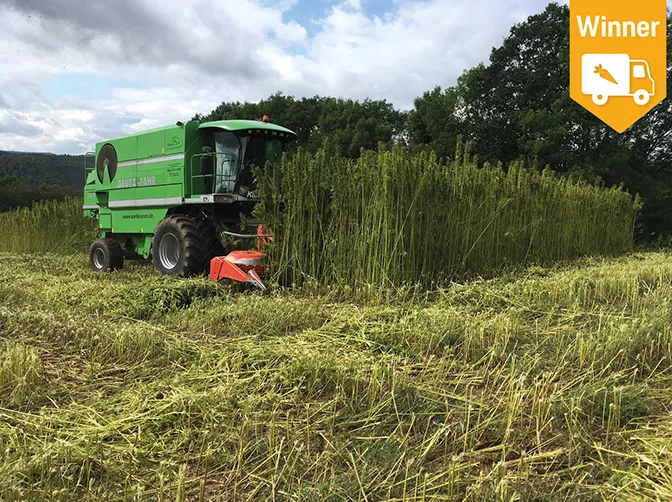
Despite the various uses of the hemp crop, it is rarely cultivated in Germany. This Operational Group focused on the implementation of new value chains of industrial hemp in the Werra-Meißner district, helping farmers generate more diverse sources of income. In this project, nine farmers worked with regional businesses and an advisory institution for agriculture and horticulture. The farmers grew a dual-purpose hemp variety to market the hemp nuts and the hemp straw. The activities include on-site partial processing of the hemp plant, the optimisation of cultivation and the breeding of hemp plants adapted to the local conditions. In addition, the project decided to process straw into pellets, which make for excellent bedding in animal stables.
Project presentation
Interview
SHEEP-UP – Ovine bio-diversity in Veneto: an economic opportunity for farmers and their territory
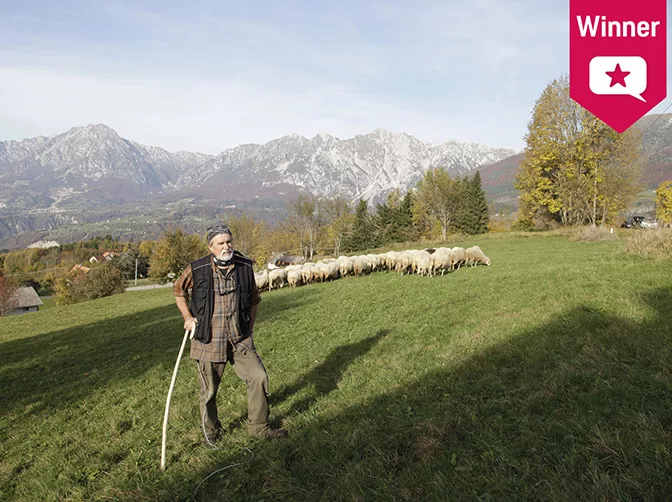
This Operational Group from Italy addresses the decline in alpine ovine farming by focusing on economic sustainability. In collaboration with farmers, researchers and public actors, the project aimed to enhance production and profitability through an integrated model. The model covers elements such as the characterisation of meat and milk for nutraceutical and sensorial qualities, management of secondary production like wool, evaluation of ecosystem services and marketing actions emphasising the territory’s history. Concrete results include diversification, enhanced territorial connections, networking and the creation of new transformed products. In terms of dissemination, training courses and exchanges with other Operational Groups were organised. The model is transferable to other European areas.
Project presentation
Interview
EBioScart – GO FICO: Extraction of bioproducts from waste from prickly pear production
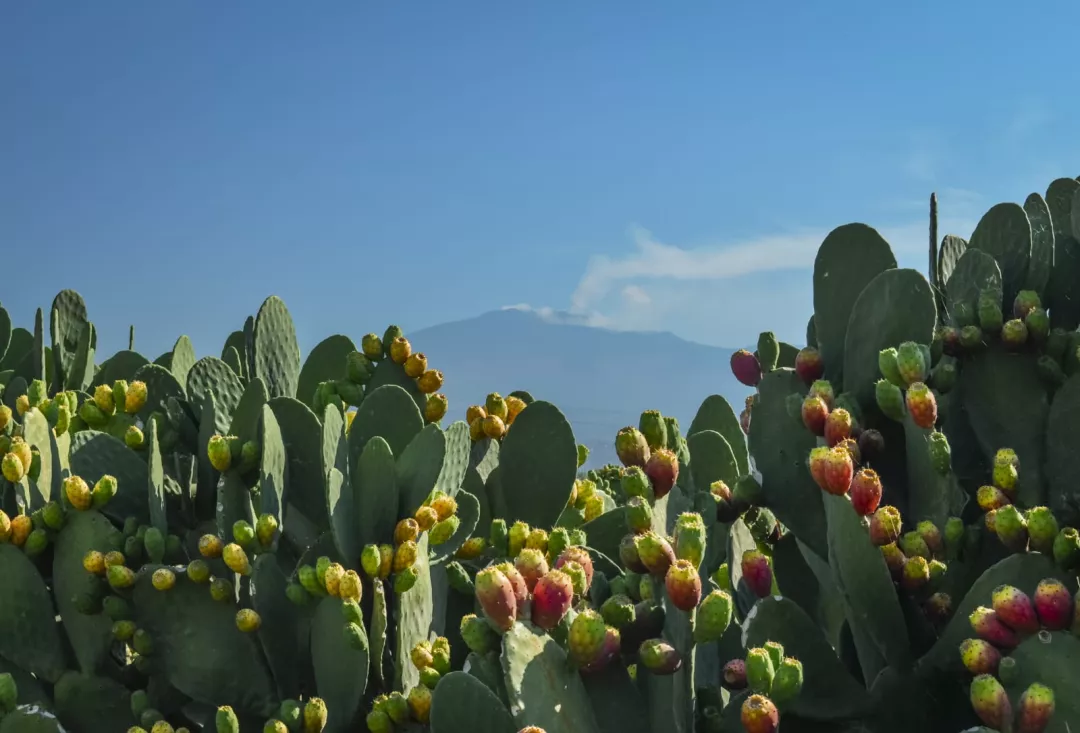
This Operational Group from Italy aimed to introduce a green industrial process to extract bioproducts from fruit scraps and create a new business model and income opportunities for farmers. The project focuses on the prickly pear supply chain, setting up integrated actions between producers, processing and service companies and research centres to reuse the ‘waste’ in multiple ways. A ‘collective laboratory’ with a pilot processing plant was set up at one of the partner sites to separate the pulp, seeds and skins. The new bioproducts obtained are of interest to various industrial sectors, including oil for the cosmetic and pharmaceutical sectors. The solid and liquid digestate obtained is being tested as a natural fertiliser in three experimental fields.
Operational Group ‘Zamojska Farma’
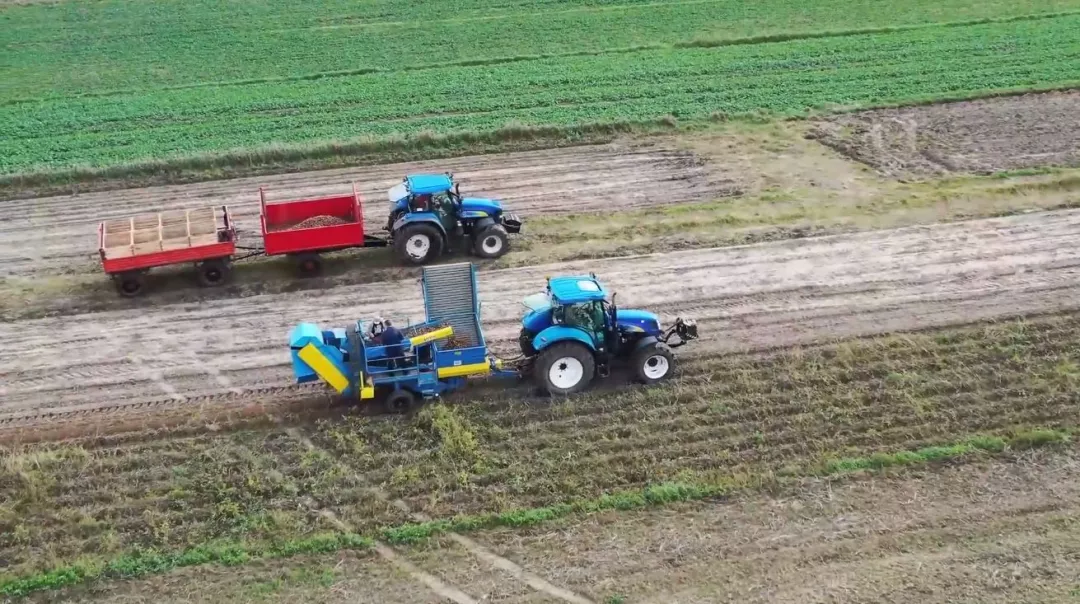
This Operational Group from Poland wanted to tackle distribution challenges and create new market opportunities in potato distribution. The project aimed to create a short supply chain to distribute and sell edible potatoes. The main results were the creation of a short supply chain and a stronger position in the supply chain for the farmers participating in the Operational Group. Thanks to this, affiliated farmers were able to increase their market share and eliminate intermediaries from the value chain, improving their market position. A follow-up project has been granted, which will further scale up the outcomes described above.
Rosa Romana apple of the Bolognese Appennines territory: organisation of a quality organic supply chain
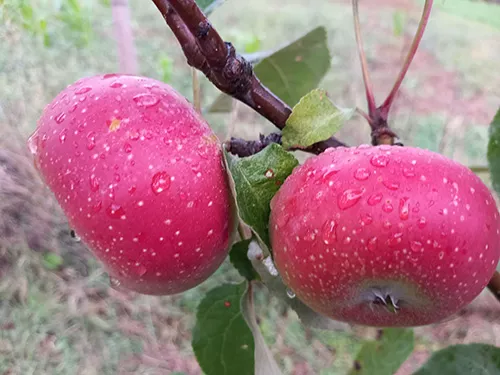
This Operational Group from Italy focused on Rosa Romana, an ancient local variety of apple from the Appennino Bolognese region. The project facilitated the organisation of a new production chain through the aggregation of growers in the region and the creation of a collective brand registration according to the requirements of organic farming. In addition, the project resulted in the development of processed products – juices, cider, dried products and vinegar. Farmers received technical and scientific support from commercial and research partners. The technical aspects of the project activities were disseminated, resulting in at least 18 new Rosa Romana production plants and several nurseries that produce and sell seedlings.
Animal welfare and husbandry
EIP-AGRI Operational Groups that contribute to improving animal welfare and sustainability of animal farms through innovative practices related to cage-free practices, precision livestock farming, new commercial opportunities and so on.
Parsutt – Parma ham high sustainability standard
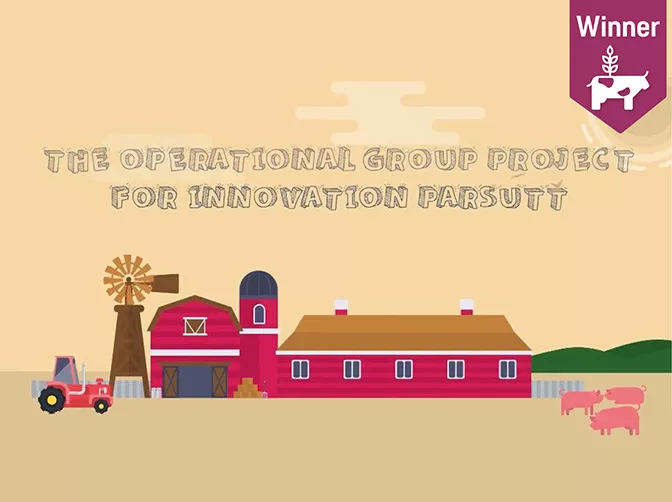
Consumers today want to be informed about both the physical and ethical qualities of food. The objective of this Operational Group from Italy was to create a sustainability protocol for heavy pig farming based on animal welfare and biosecurity. The main parameters for animal welfare relate to housing (size, absence of cages, conditions, etc.), while for farm biosecurity, they relate to the prevention of disease spread. The Parma Ham Consortium involved research bodies, ham producers, slaughtering and processing companies, and pig farms. The protocol was applied in 15 pig farms and an evaluation with a sample of consumers revealed that the majority thought a 10% increase in the price was acceptable to guarantee animal welfare and biosecurity standards.
Project presentation
Interview
Animal welfare dairy cattle in Hesse – provision and further development of a practical animal welfare tool for dairy farms
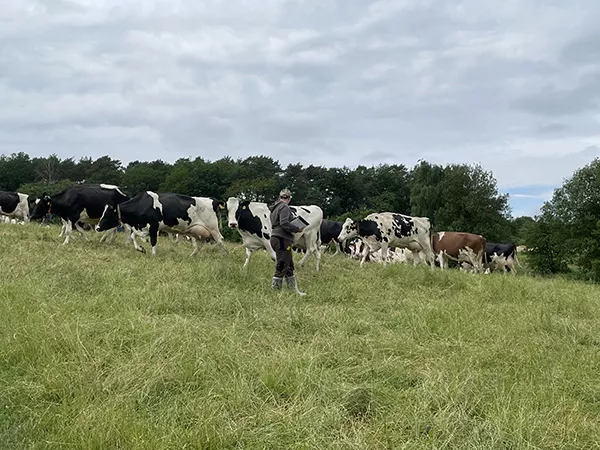
As part of this Operational Group from Germany, advisory services, scientists and dairy farmers have together developed a smartphone tool that can be used on-farm to monitor animal welfare of dairy cattle. The tool has been tested on 40 farms. Farmers input data according to ten criteria. It provides pictures to identify a cow's status easily and automatically integrates health and calving data of the herd. The tool shows results and compares them to target values, previous assessments and other farms. These assessments can be downloaded and used to identify possibilities for further improvement of animal welfare. The tool will be made freely available to all farmers as an app for use in other German regions and countries.
BEE SMART, BEE HEALTHY
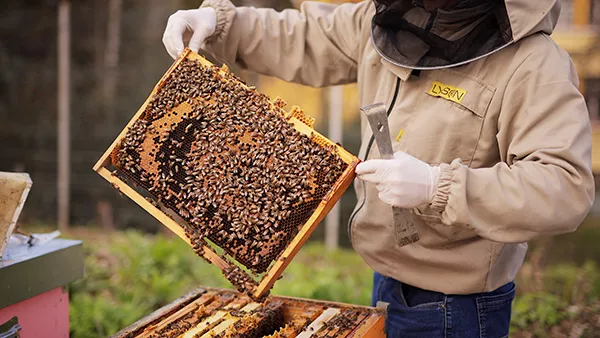
In beekeeping, extreme weather events increase the risks associated with diseases and pests. This Operational Group from Romania aimed to test a monitoring and alert system based on a ‘smart’ device for identifying diseases which can be easily adapted to small and large beehives. It also launched beekeeping ‘living labs’ to ensure cooperation between beekeepers and researchers to identify natural solutions for treating pests and diseases. The project engaged in the co-creation process with beekeepers, a university, a veterinary school, technology companies and innovative startups. At the same time, the device offers beekeepers options to add value to their products.
Preserving quality in the ‘Arouquesa’ meat
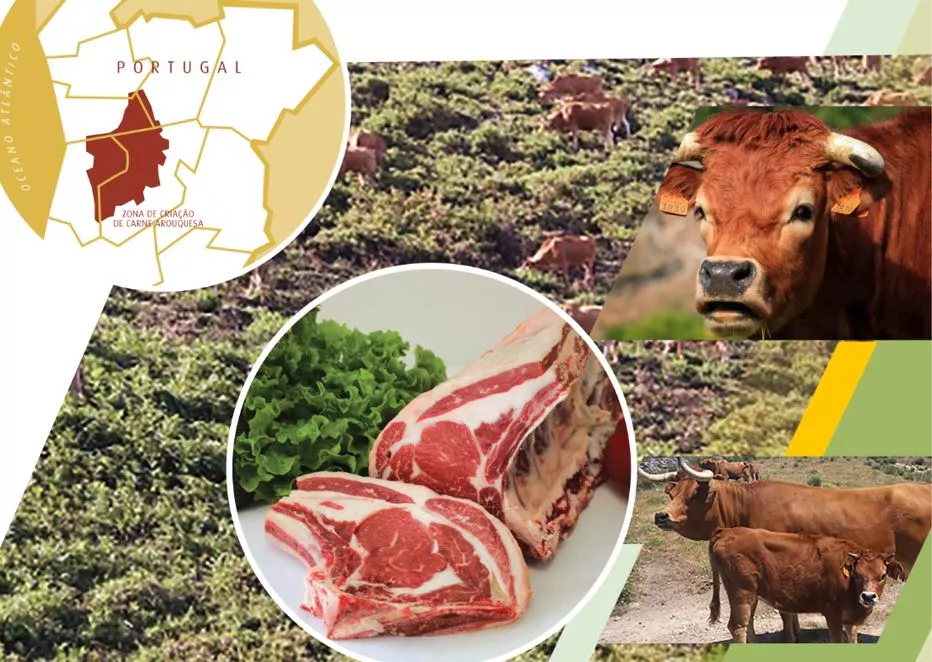
The exceptional organoleptic properties of Arouquesa-DOP meat rely on the breed and the semi-extensive traditional mountain landscapes in which the animals are raised. This Operational Group from Portugal aimed to improve the productivity of the animals to increase the value of the meat and, therefore, increase income for breeders. They created a new supplement to balance the diet of the traditional production system, standardise the carcasses and preserve the quality of the meat. The innovative solution allows for the planning and maximising resources and appropriate feeding solutions. The partners were researchers, a feed production company, a breeders' association and a meat producers' organisation. The results are transposable to cattle breeds in identical mountain farming systems in Portugal and beyond.
SMART FEED – Smart measurements in cattle feeding and health
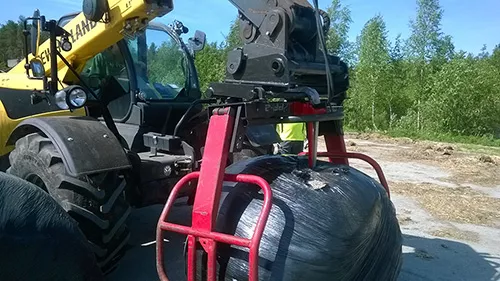
This Operational Group from Finland combined methods, tools, analytics and data transfer to create an on-farm system for monitoring silage quality and energy and protein nutrition balance in dairy cows. The overall aim was to improve cattle health and increase farm efficiency, productivity and competitiveness. The system allows the control of the feed dry matter content via a silage sampler attached to a bale gripper, a fast method for determining dry matter using a halogen dryer and a mobile application, FeedApp. This was developed in close collaboration with farmers. Other project partners were a rural advisory organisation, a small metal workshop, and a veterinarian-nutrition and animal health expert.
Climate change mitigation and adaptation
EIP-AGRI Operational Groups that strengthen resilience of agriculture and rural areas through innovative initiatives and practices directly related to climate change mitigation and adaptation or related to efficient energy management.
SUBALMA – Improving the productivity and sustainability of underground drip irrigation systems that use oil mill waste as fertiliser through the use of nanobubbles
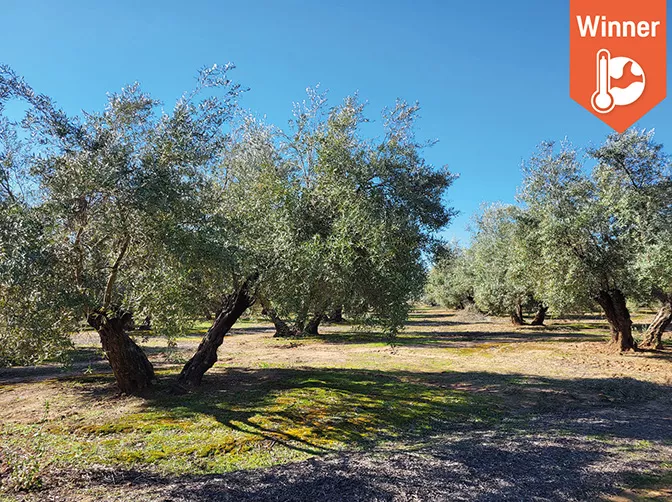
This Operational Group from Spain tackles saving water and fertilisers in the context of climate change, as well as introducing new business opportunities for farmers beyond olive oil. The project establishes circular economy strategies for reusing oil mill by-products as fertilisers through techniques that guarantee maximum water-use efficiency. The focus is on using subsurface irrigation and injection of nanobubbles in oil mill effluents, reducing the use of synthetic fertilisers in precision irrigation. This increases the productivity of olive groves, saves water, reduces labour, minimises the use of herbicides and increases the efficiency of fertilisers. Farmers are key actors in this project and collaborated with an innovation consultancy, technology developers, research centres and the regional government. A follow-up project on a wider scale is being set up.
Project presentation
Interview
Cereals diversity for adaptation to climate change (CEREALI RESILIENTI 2.0)
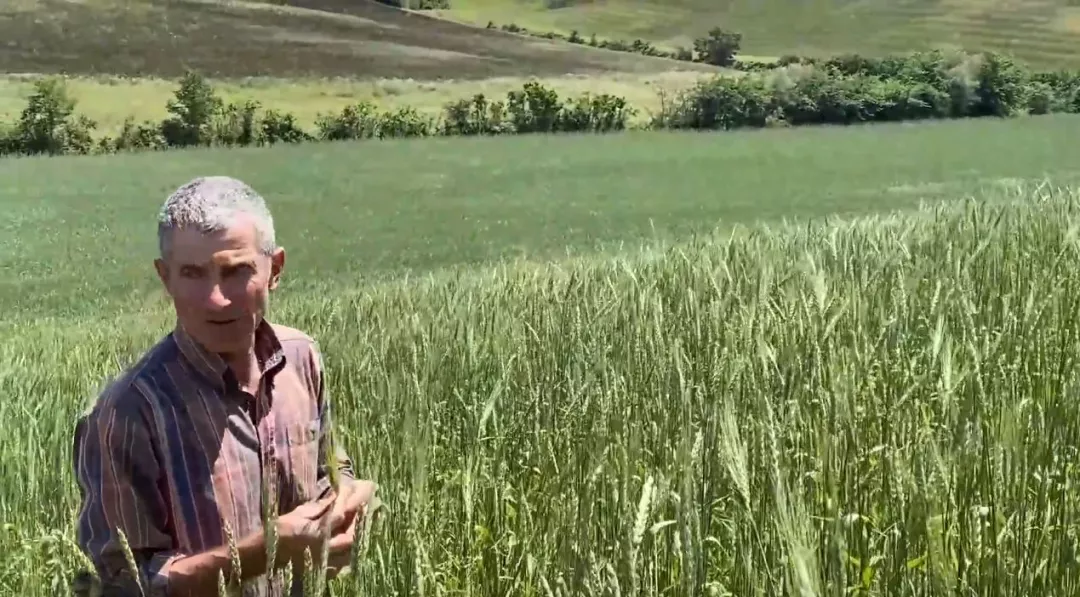
This Operational Group from Italy tackles the need to increase the ability of cereal-based agricultural systems in Tuscany to adapt to climate change in the long-term. Actors from farming, the supply chain and research came together with the aim of increasing the availability of cereal varieties that are specifically adapted to farm needs and organic cultivation through the creation of a regionally integrated seed system. The project focused on the wheat population of SOLIBAM soft FLORIDDIA where local networks of farmers contributed to the reproduction of the seed. Outcomes showed that enhancing wheat genetic diversity at the population level can effectively promote grain yield in drought and high temperatures. The innovation has been disseminated with an open-source license to guarantee wide uptake by other users.
Development of a carbon footprint guidance and calculator for recycled fertiliser products
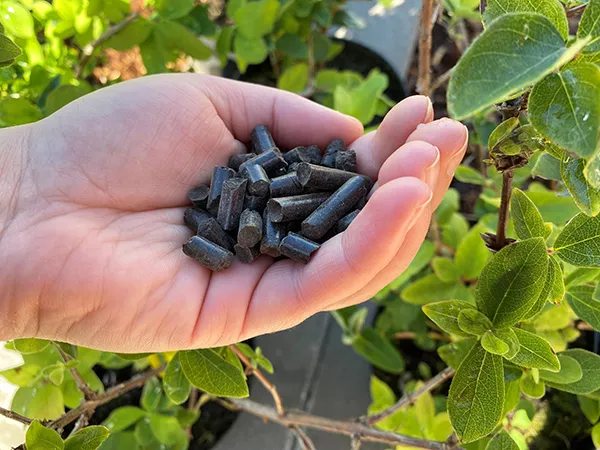
This Operational Group from Finland has developed the very first ‘Carbon Footprint Calculator’ for recycled fertilisers so that manufacturers can reliably and transparently calculate and demonstrate the climate and environmental benefits of these products. Guidelines ensure that calculations are measurable, comparable and easier to communicate. A detailed and clear model for calculating the carbon footprint of a product is available to manufacturers. The lower footprint of recycled fertiliser products could be a competitive advantage compared to mineral-based fertiliser products. The project involved bioenergy and biogas associations, industry, manufacturers, NGOs, a waterworks association, a meat processing company and agricultural advisors. The calculator is based on international standards so it can be transferred to other countries. It is being translated into English.
European Hemp Pole
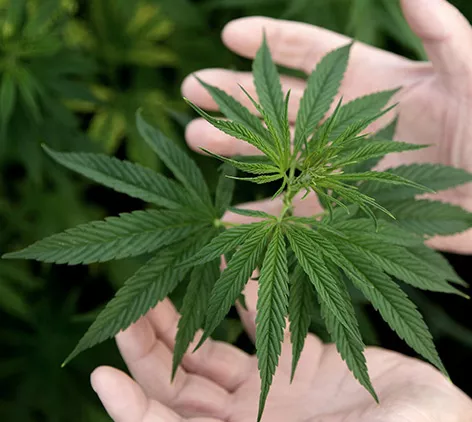
Grand Est (France) is an important region in Europe for hemp production, but most of the industrial transformation takes place outside of its territory. This Operational Group therefore aimed to bring back some of this value to the region and set up the ‘Hemp European Hub’ to share the region’s experiences and knowledge. Partners included companies, local authorities, networks, research centres, associations and farmers. Technological innovation is a significant element, but the hub also addresses the importance of social and organisational innovation. The objective of the project was to ensure the sustainability and efficiency of different hemp-related markets (textiles, building materials, etc.).
GOEfluentes – Livestock effluents: strategic approach to the agronomic/energy valorisation of the flows generated in agricultural activity
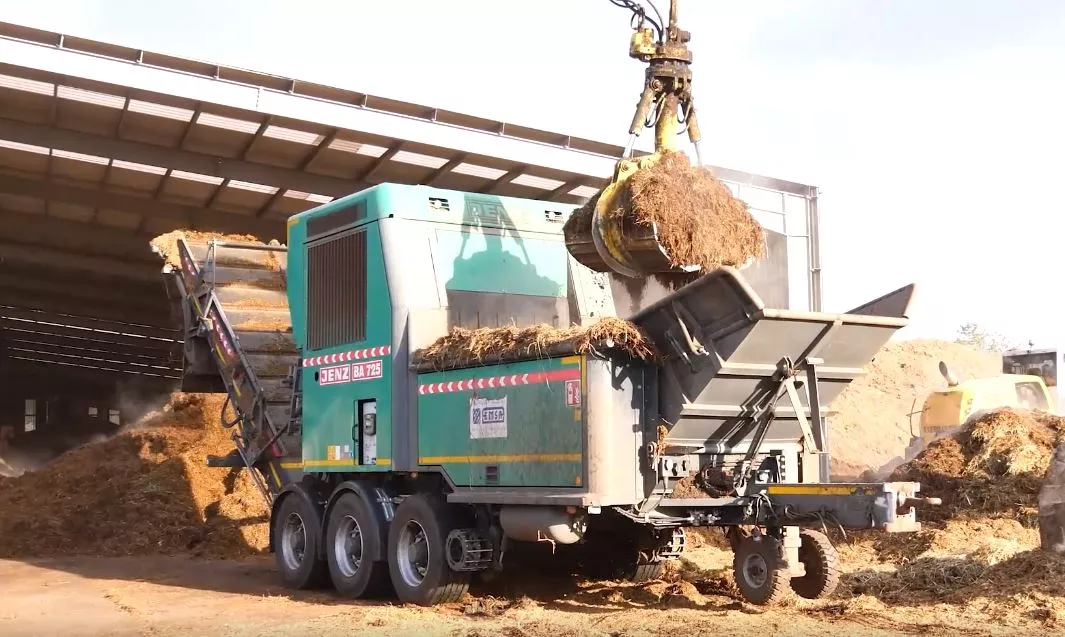
This Operational Group from Portugal offers concrete solutions related to the concepts of ‘circular economy’ and ‘zero residue’ in the context of intensive livestock systems. The solutions contribute to the efficiency of water and nutrient utilisation, reducing the environmental impact of farming and adding value to waste products. Two new processes were developed: bioremediation by insect larvae via an effluent recovery system and the use of biochar in livestock manure storage pits to reduce methane emissions. Partners include research institutes, universities, farms and industry. Farmers involved decreased costs associated with managing waste and buying fertilisers. Some techniques can be adapted to other wastes, such as olive pomaces from olive oil extraction.
Sustainable forest management
EIP-AGRI Operational Groups that showcase innovative forest management approaches related to, for example: climate-smart forestry, pests and diseases management, nature restoration, forest ecosystem services, new technologies and circular bioeconomy.
Illaun Farm-Forest Alliance
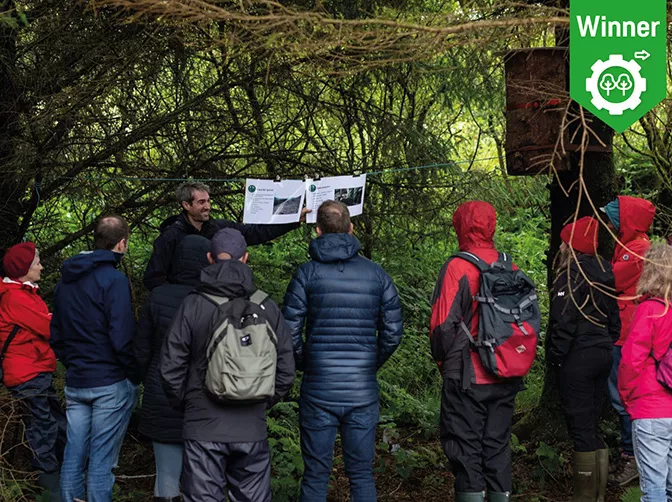
This Operational Group has developed an innovative approach to farm forests in Ireland, fostering habitat restoration, improved biodiversity, social engagement and knowledge dissemination. Pioneering a catchment-sensitive farming approach, the project collaborated closely with farmers to enhance forestry management, water quality and biodiversity. Measures included fencing, connective planting and understory enhancement. Landowners, forest managers and industry professionals took part in the development of the collaborative project. The project has resulted in securing afforestation licenses, planting thousands of trees, overcoming landowner scepticism and delivering a practical, transferable model for achieving sustainability and creating on-farm value.
Project presentation
Interview
GO SUBER – Global modernisation of the cork harvesting sector: mechanisation, improvement of work environment, optimisation of organisation and commerce
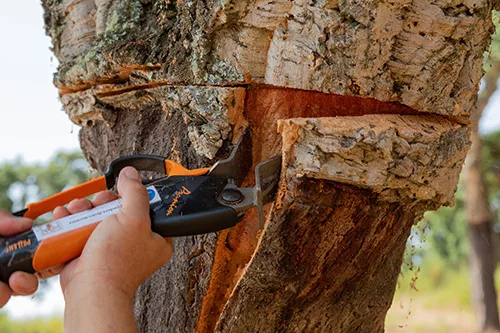
This Operational Group (Spain) addresses challenges in cork harvesting, fostering innovations and new protocols promoting safety and gender diversity. The project developed patented tools such as electromechanical tongs for debarking and new debarking work protocols based on latest technologies. The project also developed occupational health and safety protocols and aimed at facilitating increased women's access to the profession of cork debarking. The project also developed new applications for granulated and virgin cork and explored the various uses of cork as an industrial raw material. The ‘CorkClass’ training programme and quality guide were developed. The project has increased interest in new technologies, resulting in patent licensing and adoption by industry leaders. The outcomes have transferability potential in Portugal, France, Italy and North Africa.
IEPE – Efficient installation of eucalyptus stands
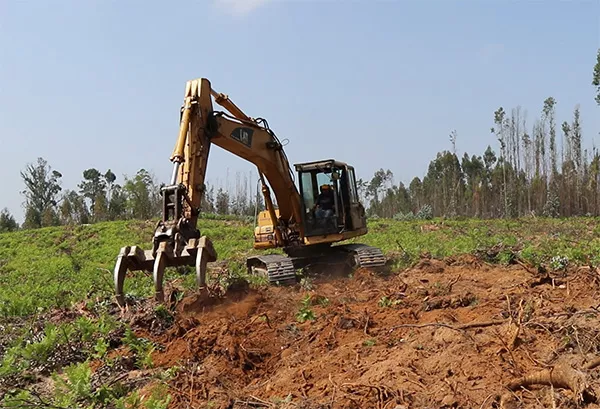
This Operational Group promotes sustainable forestry practices among eucalyptus plantation owners in Portugal. The aim is to make specific technical knowledge available to foresters to improve soil fertility and ecosystem sustainability. The project developed a decision-support tool to optimise the installation of eucalyptus stands based on sustainable forestry techniques. It provides tailored information, including cost comparisons between practices, empowering owners to make informed decisions. Forest owners, technicians, researchers and entrepreneurs collaborated to ensure effectiveness. Thanks to various dissemination activities, users have adapted the tool for other forest species and regions, demonstrating its flexibility and applicability.
FERTIPINEA – Nutrition and fertilisation of stone pine in rainfed and irrigated systems
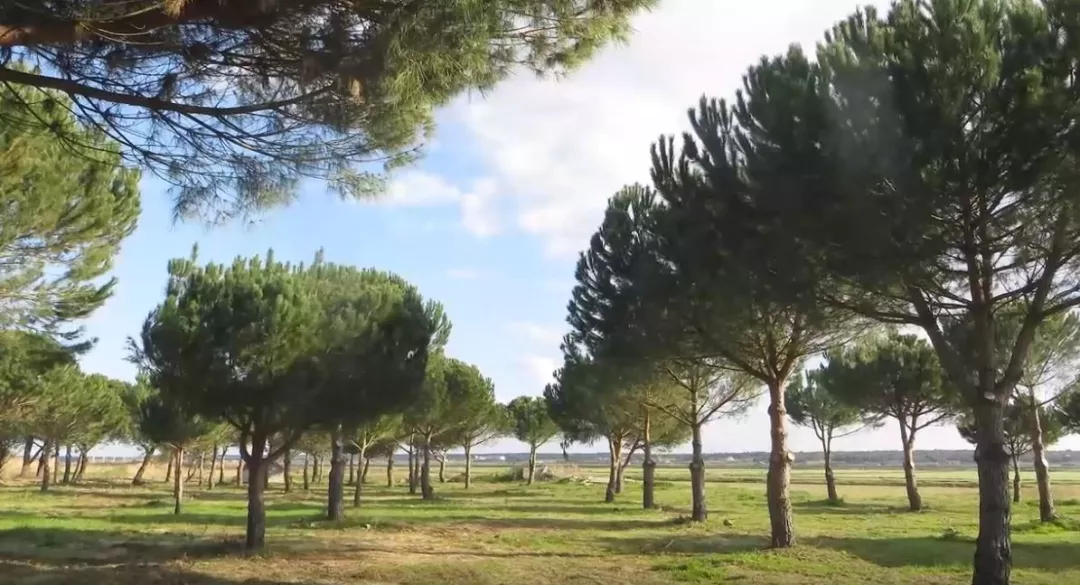
Pinus pinea L. (stone pine) plays a significant ecological, social and economic role in the Mediterranean. This tree produces pine nuts, which are highly valued for their nutritional properties, however the yearly production of pinecones can vary greatly. On several different sites in Portugal, this Operational Group studied the nutrition and fertilisation of stone pine, considering environmental and cultural factors that influence the nutritional and water status of the trees and the impact on pinecone yields. The project produced a technical manual on fertilisation of stone pine for national pine producers, forestry technicians, forestry organisations and others.
PLATISOR – Methods for the management of cork oak forest with ‘Platypus cylindrus’ attacks in the region of Sor
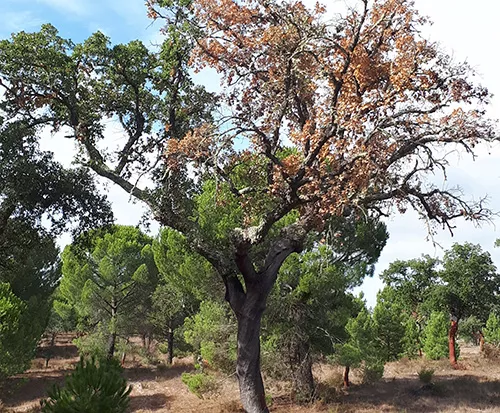
Cork oak forests are highly complex ecosystems with significant economic, social and ecological value. The increase in the pest Platypus cylindrus has contributed to the decline of the cork oak forests in Portugal. In order to reverse this decline, this Operational Group promoted practices for the biological and biotechnical control of Platypus cylindrus. A set of procedures was developed to increase the resistance of cork oaks, ranging from methods for managing affected wood to installing insect traps. The project partners are foresters who provided experimental plots, an agro-forestry association, a scientific organisation and a plant-health product company. The results obtained can be easily adopted by any cork oak and holm oak forest managers across Portugal and beyond.
Digitalisation
EIP-AGRI Operational Groups that demonstrate how digitalisation has great potential to increase profitability, improve working conditions for farmers, foresters and others, as well as to improve the environmental and climate impact of agriculture and forestry.
Precision liming in Brandenburg
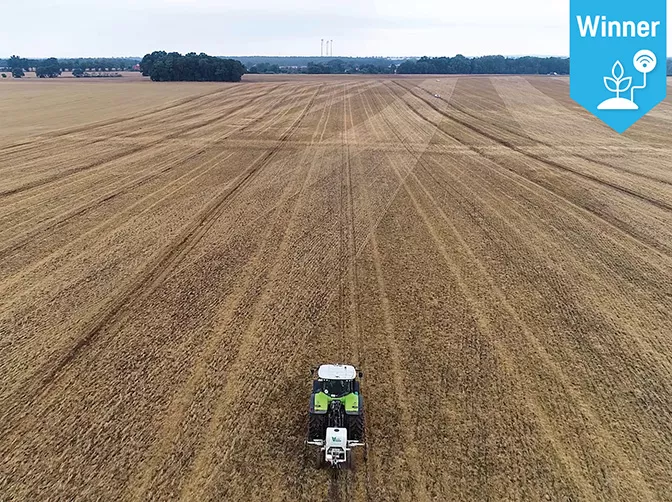
In Brandenburg (Germany), only 26% of arable land is in the optimal soil pH range, which results in considerable yield losses and reduced nutrient efficiency. To counteract soil acidification, this Operational Group has developed a fully digitised site-specific soil acidity management process and decision support system for variable-rate liming. It includes sensor-based mapping, a novel approach for lime requirement calculation and generates variable-rate lime application maps. The partnership consisted of research institutes, three farms, a consulting company and an IT service provider. The tool can also be used in various other smart farming applications throughout Germany.
Project presentation
Interview
BRIDE – Biodiversity Regeneration in a Dairying Environment
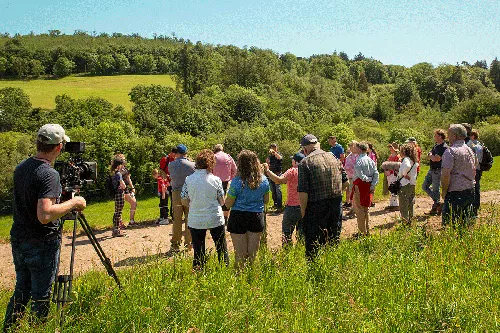
The Operational Group addressed farmland biodiversity loss by incentivising farmers to improve habitats through a results-based payment system, rewarding farmers for biodiversity improvements. Working with over 40 farms (e.g. beef, lamb, milk) in the Bride Valley, Ireland, the aim was to create a minimum of 10% ‘Space For Nature’ on each farm, so a web portal and app were developed for accurate mapping and verification. The app also generates a ‘Farmland Biodiversity Index’ and enables farmers to document biodiversity over time. Two labels were registered for farmers and food products meeting biodiversity criteria. The outcomes are transferable to other regions and farmer-consumer connections were improved. The project involved NGOs, research, farm advisors, farmers and county councils.
GO_PHYTODRON – Validation and Safety of Aerial Drone Applications in the Agroforestry Environment
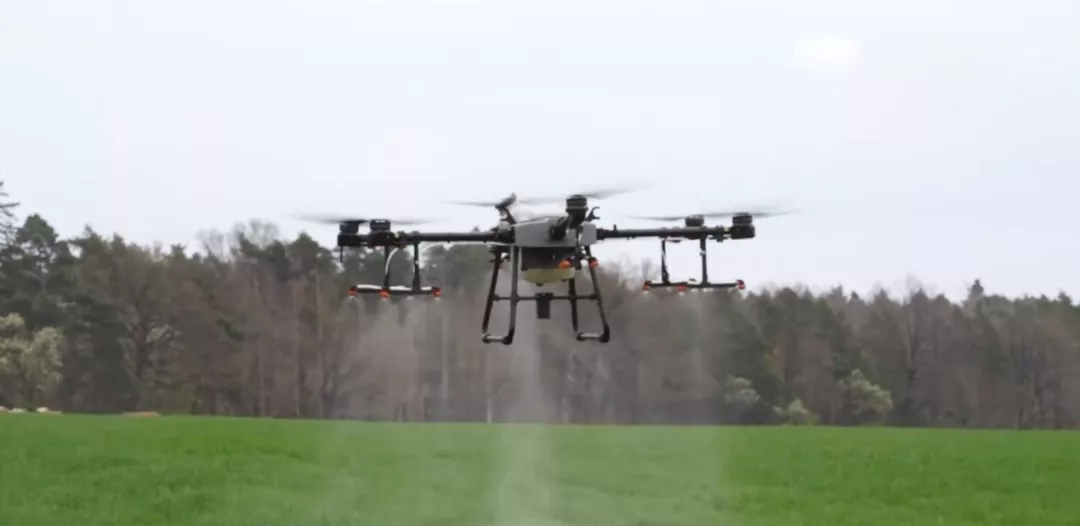
The integration of drone technology in agriculture, particularly for plant protection product (PPP) applications, is the focus of this Operational Group from Spain. Drones offer unparalleled precision, minimising waste and environmental impact. Addressing regulatory challenges, the project aimed to validate the safety, sustainability and efficacy of drone use for PPP applications. Farmers from various sectors collaborated to develop this solution alongside representatives from agri-food industries, research institutions and regulatory bodies. Concrete results include regulatory and trial protocols and awareness-raising activities, including field demonstrations. The protocols are adaptable to EU wide implementation and across different agricultural scenarios.
Improving Vineyard Efficiency and Sustainability by Managing Within-field Variability through Variable Rate Applications
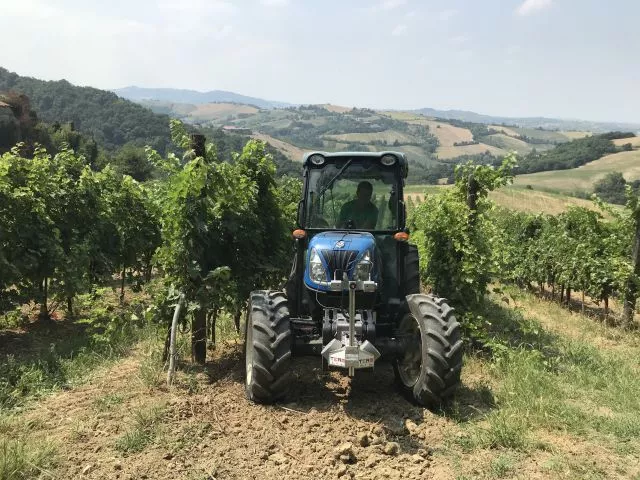
This Operational Group from Italy targeted the inefficiencies of traditional vineyard management in Colli Piacentini due to within-field variability through precision viticulture. Their innovation centred on novel management protocols using variable rate technologies. The MECS-VINE sensor facilitated high-resolution canopy growth mapping, enabling tailored management strategies such as variable cover crop sowing, adaptive canopy spray and selective harvesting. Growers, researchers, consultants and tech companies collaborated to develop, implement and disseminate these solutions that promote sustainability and profitability amidst a changing climate. Results showed increased adoption of precision vineyard management and selective harvesting adoption, enhancing product diversification and generating potential higher revenues.
WeedBuster – Prototype Andela robot weeder
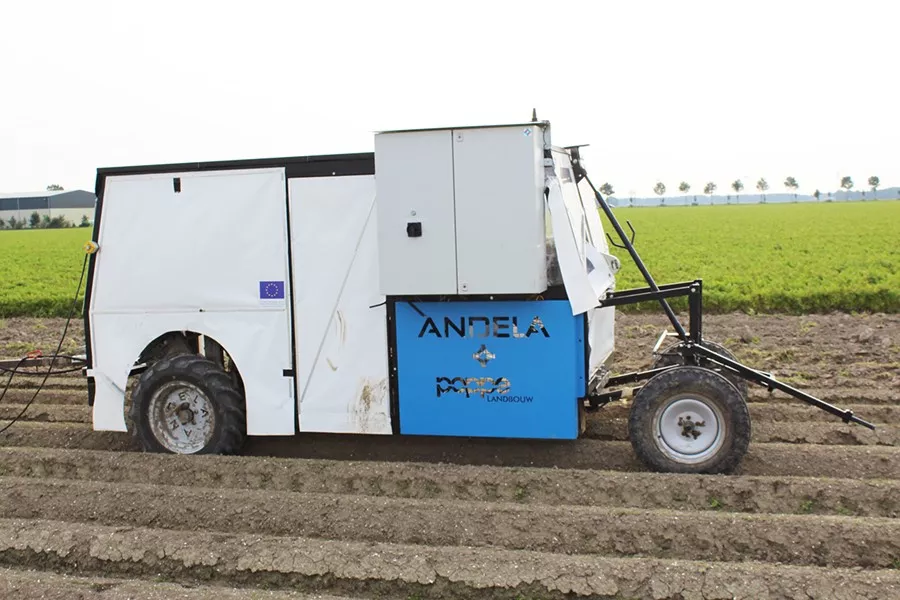
This Operational Group from the Netherlands developed a prototype robot that automatically recognises and removes weeds to replace manual labour with automation, specifically for organic arable farmers. The robot has high-tech features such as AI-driven weed detection and robotic arms. It addresses the drawbacks of manual weeding, such as high costs and labour requirements. Organic farmers and weed specialists collaborated with the tech company to refine the robot's functionality based on actual needs. A marketable version of the prototype is now available. The project demonstrates how technology-driven solutions can revolutionise agriculture, reduce costs and promote environmental sustainability.
More information
You can find out more about the EIP-AGRI Innovation Awards and the awards ceremony on the dedicated webpage: